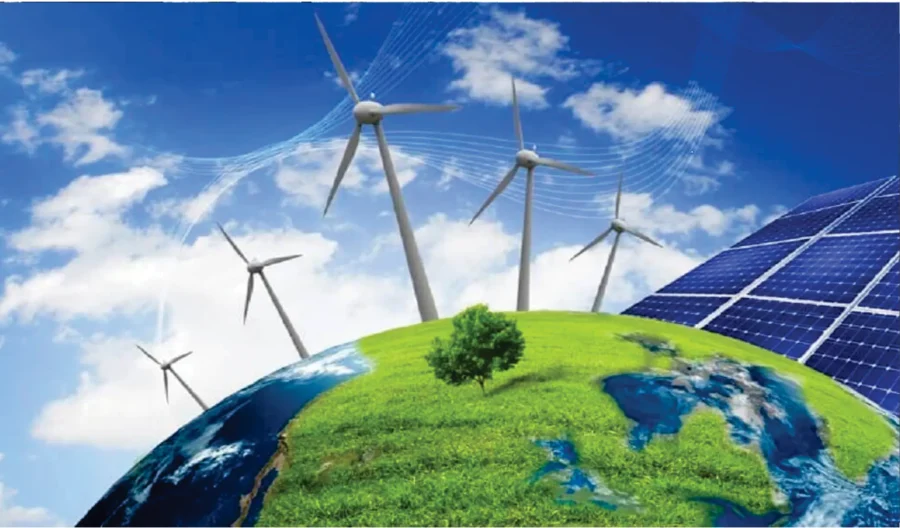Renewable Energy; Building a Better Future for Pakistan
Pakistan is a country blessed with natural resources, including ample solar, wind and hydropower potential. However, for decades, it has been relying heavily on fossil fuels, leading to a surge in pollution, environmental degradation and energy insecurity. Pakistan is amongst the top ten countries in the world in terms of air pollution and its cities are among the most polluted ones globally which is taking a toll on the health of its citizens.
Fortunately, in recent years, the government and the private sector have started realizing the importance of renewable energy to mitigate the adverse effects of climate change and improve energy security. There has been a significant shift towards renewable energy and Pakistan is now among the top five countries globally in terms of installed solar photovoltaic (PV) capacity.
The government has set an ambitious target of generating 30% of the country’s electricity from renewable sources by 2030. To achieve this, it has introduced policies to encourage investment in the renewable energy sector, including offering tax incentives, simplifying the approval process and facilitating grid integration. Moreover, several private sector companies have also stepped forward to invest in the renewable energy sector.
They have realized the economic potential of renewable energy and the positive impact it can have on the environment. They are now investing in large-scale solar and wind energy projects which are not only providing clean energy but also creating job opportunities and contributing to the national economy. Renewable energy is not only vital for reducing pollution and mitigating the effects of climate change, but it is also crucial for energy security.
Pakistan has been facing an energy crisis for years, with frequent power outages, causing significant disruption to daily life and hampering economic growth. Renewable energy can help overcome this crisis by providing a stable and reliable source of energy. Furthermore, renewable energy can help increase access to electricity in rural areas, where more than half of the population is still without electricity.
Solar home systems, micro-grids and mini-grids are some of the innovative solutions that can help provide clean energy to remote areas, improving the quality of life and enabling economic growth. Launched in 2013, China’s Belt & Road Initiative (BRI) is a development and investment initiative focusing on ‘shared destiny’. Originally envisioned for connecting East Asia and Europe through physical infrastructure, BRI now encapsulates Africa, Oceania as well as Latin America, significantly broadening China’s economic and political influence.
China’s soft power and diplomatic success is attributed to the visionary leadership of the Chinese Communist Party. China realized the secret to emerge as a global power, as early as the late 1970s, when it decided to follow the policy of ‘soft power’ by focusing on development and economic connectivity rather than meddling in and policing other State’s internal affairs. Consistency and perseverance in terms of its outreach have defined Chinese vision. Chin- Pakistan Economic Corridor (CPEC) is a pilot project of BRI and a framework for regional connectivity.
It has the potential to positively impact countries to the west of Pakistan including Afghanistan, Iran and broader Central Asia. It envisions connectivity through physical infrastructure, exchange of goods, energy projects to fuel commercial activities, integration of the region, development and harmony. Infrastructure development and energy projects make up the major portion of the CPEC initiative.
A network of roads and railway lines are foreseen to ensure connectivity throughout the country via twenty-four projects. A few of the transport infrastructures have been completed while others are in the pipeline. There are twenty-one energy related projects under CPEC, of which fourteen have been completed. These projects vary in terms of their power generation technology and capacity. These projects are significant for Pakistan for several reasons: enhanced valuation of surrounding land; job creation and human resource development; transfer of technology; meeting energy needs of Pakistan; powering industrial zones; strengthening Pakistan’s renewable energy base and setting up right precedence for other renewable energy projects. As one of the most climate change prone countries in the world, Pakistan directly needs investment in power projects which are renewable and environment friendly.
This project is vital for stabilizing climate change and achieving net zero carbon emissions. CPEC is a game changer for Pakistan and investment like in renewable projects are crucial for the energy security of the country. Investment in renewable energy backed by strong CSR policies can help make a cleaner and better Pakistan.










